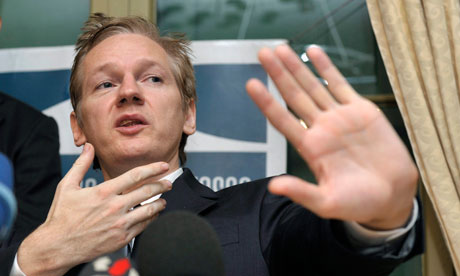Julian Assange: Swedish court upholds order to detain WikiLeaks founder
Supreme court in Stockholm says it sees no reason to review order to detain Australian for questioning over allegations of rape and sexual molestation

Sweden's supreme court today upheld a court order to detain the WikiLeaks founder, Julian Assange, for questioning over allegations of rape and sexual molestation.
WikiLeaks has angered the US and other governments by publishing almost 500,000 secret documents about US diplomatic relations and the wars in Afghanistan and Iraq.
The search for Assange, whose whereabouts are unknown, was stepped up yesterday as Sweden confirmed it had issued a European arrest warrant for him.
Since leaving Sweden, he has appeared in Britain and Switzerland but disappeared from public view after a 5 November press conference in Geneva. He has spoken publicly only through online interviews.
The supreme court in Stockholm only reviews cases that are of importance for the interpretation of Swedish law or exceptional cases where circumstances merit such a review.
It said it saw no reason to review the Assange case, and upheld the detention order. The previous court order stated that Assange was suspected of rape, two counts of sexual molestation and one count of unlawful coercion.
Assange's lawyer in Britain, Mark Stephens, said he would challenge any eventual British arrest warrant in court.
"The process in this case has been so utterly irregular that the chances of a valid arrest warrant being submitted to me are very small," he told the Associated Press.
